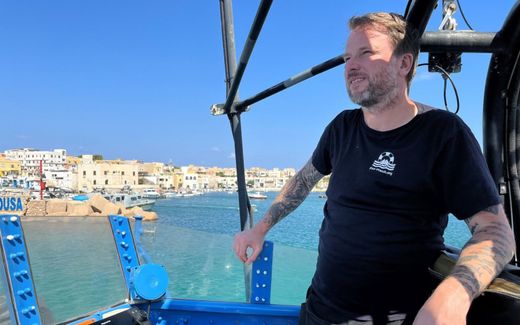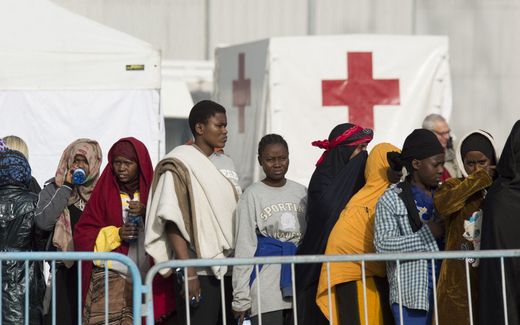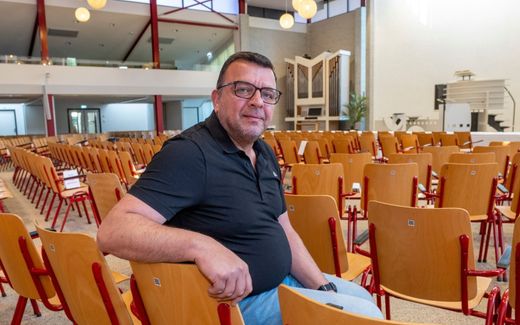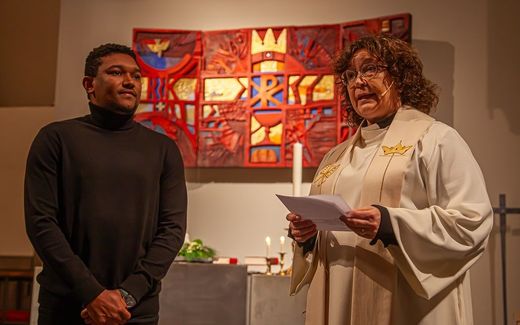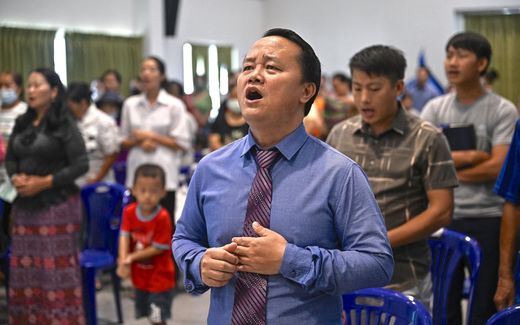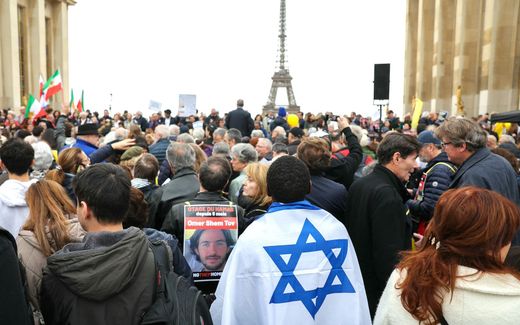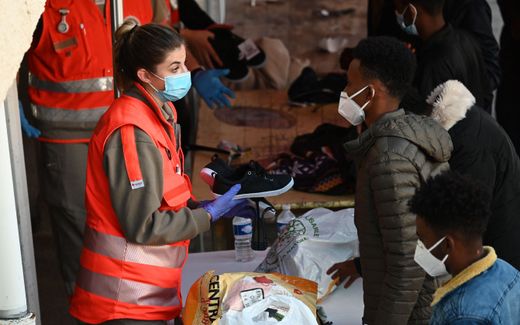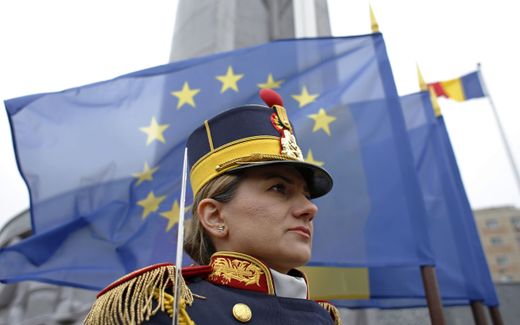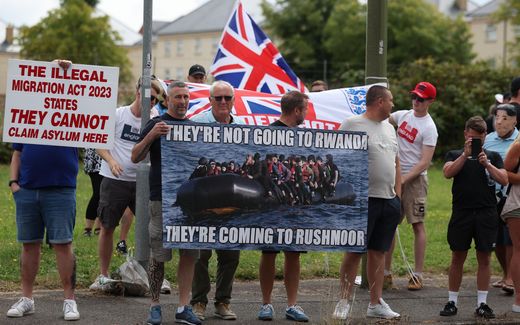Francesco pastors among migrants in Sicily, one refugee at a time
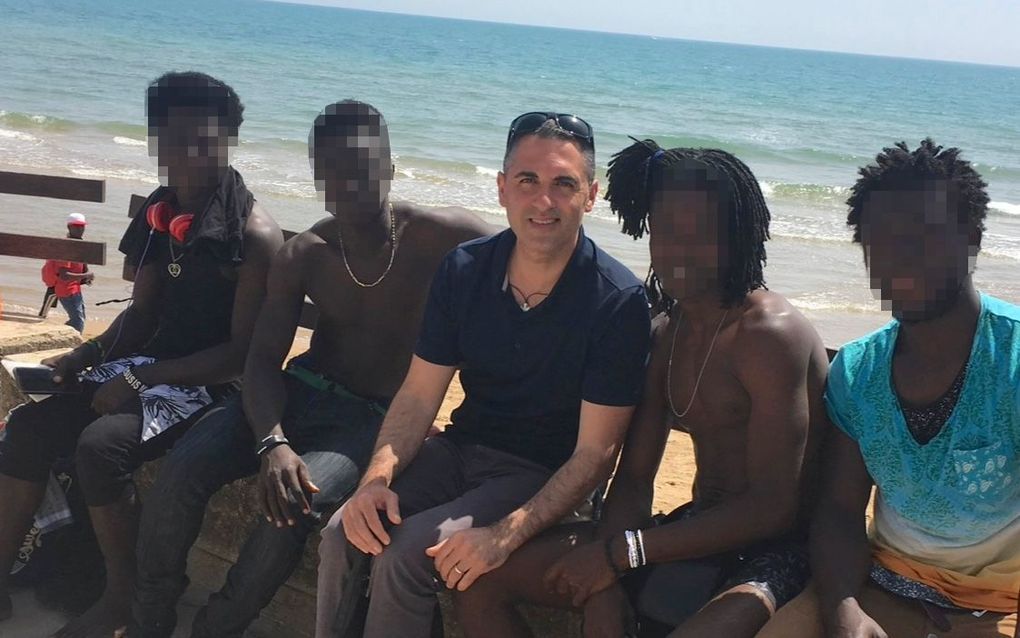
Francesco with some migrants around him. Photo Cédric Placentino
Southern Europe
Early morning, October 3rd, 2013: All seems calm on the small island of Lampedusa, in the south of Sicily. Yet, a few miles off the shores, a major disaster is taking place. A ship transporting over five hundred migrants from Africa to Europe has capsized. The tragedy claims 368 lives.
The 2013 Lampedusa Shipwreck is one of the major disasters that has taken place in the Mediterranean Sea in recent history. The Strait of Sicily is indeed a perilous passage for migrants and asylum seekers coming from Asia and Africa to Europe.
Migration is a serious challenge for the Italian authorities, in particular since the 2011 Arab Spring, as thousands of people tried to flee the chaos.
Yet, it is also a great opportunity for the church to serve and shine the light of Christ to these people. Francesco and Tina Luzzolini are a Christian couple who decided to dedicate their lives to doing just that. They run a day centre for refugees and migrants in Ragusa, in the southeast of Sicily.
Refugees
Francesco Luzzolini, reaching out to migrants, most of whom have a Muslim background, does not sound like an attractive vocation. What brought you to this choice?
“It all began with a short-term missionary trip that my wife and I made to Yemen in 2003. During that time, we received a heart from the Lord for the Arab people. In the following years, we tried to understand how we could reach these people.
Eventually, we became convinced that we would work among refugees. But at the time, there were not so many coming to Europe. The Arab Spring had not yet happened. Later on, we realised that our choice was a prophetic one.
We went to study at a seminary in Switzerland and then to study Arabic in Egypt so that we could be equipped to help the refugees.
Initially, we thought that we would remain in the Arab world in order to serve these people, but finally we came to realise that the Lord was leading us to Sicily. This was confirmed when our visa in Egypt was not extended in October 2010, just a few months before the beginning of the Arab Spring.
We returned to Germany, where I grew up as a child, and the doors to Sicily finally opened in August 2012.”
Fewer migrants
The latest statistics published by the Italian ministry of Interior, show that the number of migrants arriving by boat on the Italian shores has significantly diminished in 2024. In 2023, about 150,000 migrants were disembarked on Italian shores, compared to ‘only' around 60,000 migrants in 2024.
But the migration crisis is not necessarily over. According to these same statistics, there are still about 140,000 people locked in Italian reception centres across the country, Lombardy topping the charts with about 18,000 people.
The statistics don’t show the religious background of these people. However, the various nationalities found among them seem to indicate that the vast majority adhere to Islam. Of the nearly 60000 people who disembarked in Italy in 2024, half of them came from Bangladesh, Syria and Tunisia, while the rest of the nationalities ranged from Egypt, Guinea, Pakistan, Sudan, Mali or Gambia.
How did you know that Ragusa would be the place where you would operate? Did you know people there?
“No, initially, we didn’t even know where to go in Sicily. Ragusa opened up quickly, and soon after, the Lampedusa shipwreck took place, and things began to change dramatically in Italy.”
In which sense?
“This shipwreck put the Italian government under pressure. At the time, the so-called Bossi-Fini law criminalised anyone who was found helping migrants in the sea, even in the case of a shipwreck. Several fishermen who had helped these people were denounced. Obviously, this was an immoral situation, and finally, the accusations were dropped.
But the government could not hold to that law anymore. Then the so-called Operazione Mare nostrum [Operation’ Our Sea’, in reference to the way the Romans called the Mediterranean Sea, ed.] started, in which the government sent ships to save anyone found in the sea. But that obviously caused a major increase in illegal immigration in Italy, up to 2000 people per day. This became unmanageable, and the operation was stopped only a year after the tragedy, on October 31st, 2014.
2014 was also the year when many migrants came because of the war with ISIS in the Middle East. The images of the numerous migrants coming to Europe moved many in Europe. And so many NGOs from Germany or the Netherlands, and even private people went to pick up the people on the sea. Then they brought them to Italy and returned home.
This began to upset the Italians in general. And so, in 2019, the then Interior minister Matteo Salvini decided to close the harbours to the ships trying to bring the migrants to Italy.”
You surely must have been busy helping the refugees and the migrants since you arrived in Ragusa. How have you proceeded?
“Firstly, we don’t want to see these people as refugees or migrants, but as people made in the image of God. Therefore, our responsibility is to honour them without justifying the bad things they may be doing.
We seek to establish a dialogue, to love and to help them. We do it in a friendly way or through the office we run. And so, we organise specific thematic events. For example, we organised an event on women’s genital mutilation, something that is practised among Muslims.
We invited a Nigerian Christian who had actually done her doctoral thesis on the topic, and obviously, this opened the door to a lot of dialogue. This helps us overcome the huge cultural and linguistic barriers. Evangelisation can be effective only when these obstacles are overcome.”
Have you seen Muslims becoming Christians through your ministry?
“Yes, I have, but in general, it’s not easy for a Muslim to reach such a point. And even when they are open to the Gospel, deciding to become a Christian is a very costly step to take for them. A Muslim who leaves Islam and thus acknowledges it as false is excluded from his community.
Let me tell you the true story of a Muslim who came to Italy to radicalise himself and participate in jihad. He used to beat his wife, to force her to go to prayer, and so on.
At some point, he began to have doubts about his faith, and he began to visit the centre. We began a dialogue together, and bit by bit, he came to the conclusion that Islam was not a religion compatible with man. He realised that the Islamic fatalism robbed man from responsibility. The only hope was to escape the world and go to heaven.
Finally, this man accepted the Lord. Then, he went home to tell his wife that he would not force her to go to prayer or to wear the veil anymore. He told her that she was free to do whatever she thought was best for her.
But his wife turned against him and denounced him to his community. The man ended up having to sleep in a car for about three months. He faced serious threats from the community. They even attempted to burn his car several times. This is just an example of what new converts from Muslim backgrounds can face.”
How do the Sicilian churches respond?
“We collaborate with two migrant churches, one led by a Nigerian and another by a Ghanaian. But in general, it is not easy for the local churches to respond to the need to reach these people. Not everyone is ready to have a dialogue because it forces us to question what we believe.
But there is a great need. A Muslim who becomes a Christian, such as the man I mentioned earlier, is in dire need of a loving Christian community to surround him. Without that vital connection, such a man will not be able to grow and flourish.”
About Francesco Luzzolini
Francesco Luzzolini is an Italian born in Germany. His grandparents emigrated from the south of Italy to Germany for work reasons after World War II.
Luzzolini is a cook by training and worked in the field of gastronomy for seventeen years. In 2003, he responded to the call to serve as a missionary.
Tina, his wife, is also a child of Italian migrants in Germany. They both became Christians in Germany and now have three sons. Since 2012, they live in Ragusa (Sicily), just twenty-five kilometres away from the coast of the Mediterranean Sea.
Related Articles


